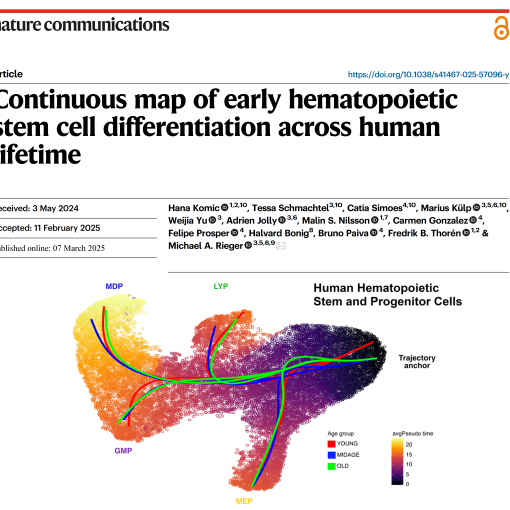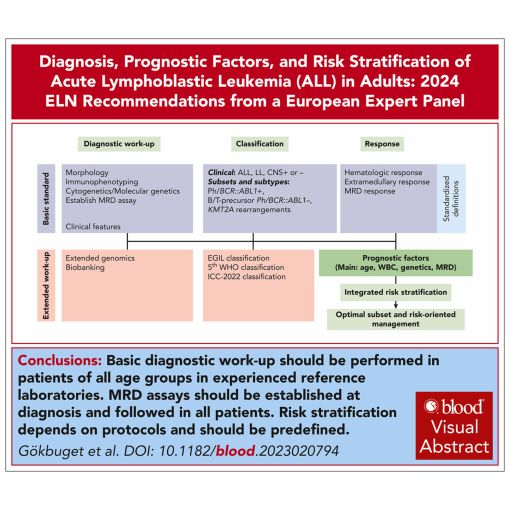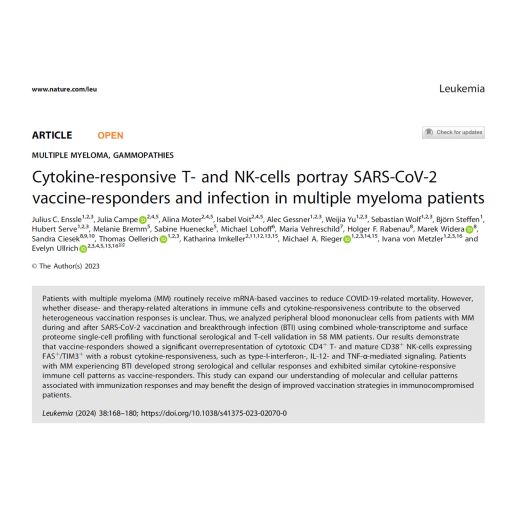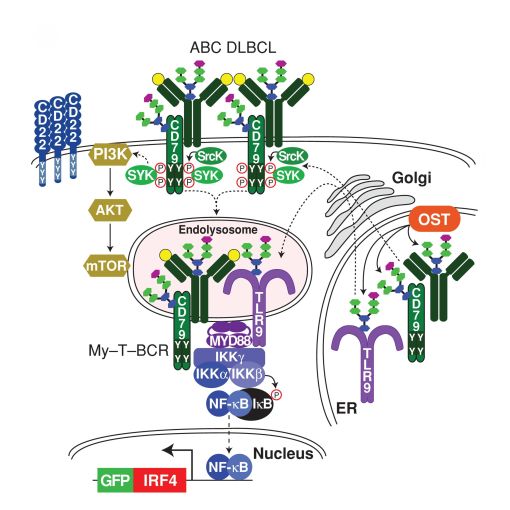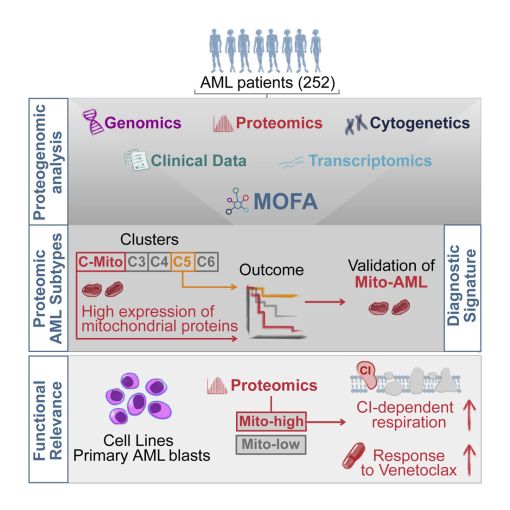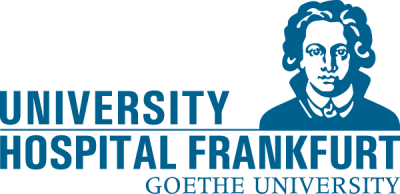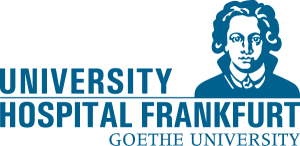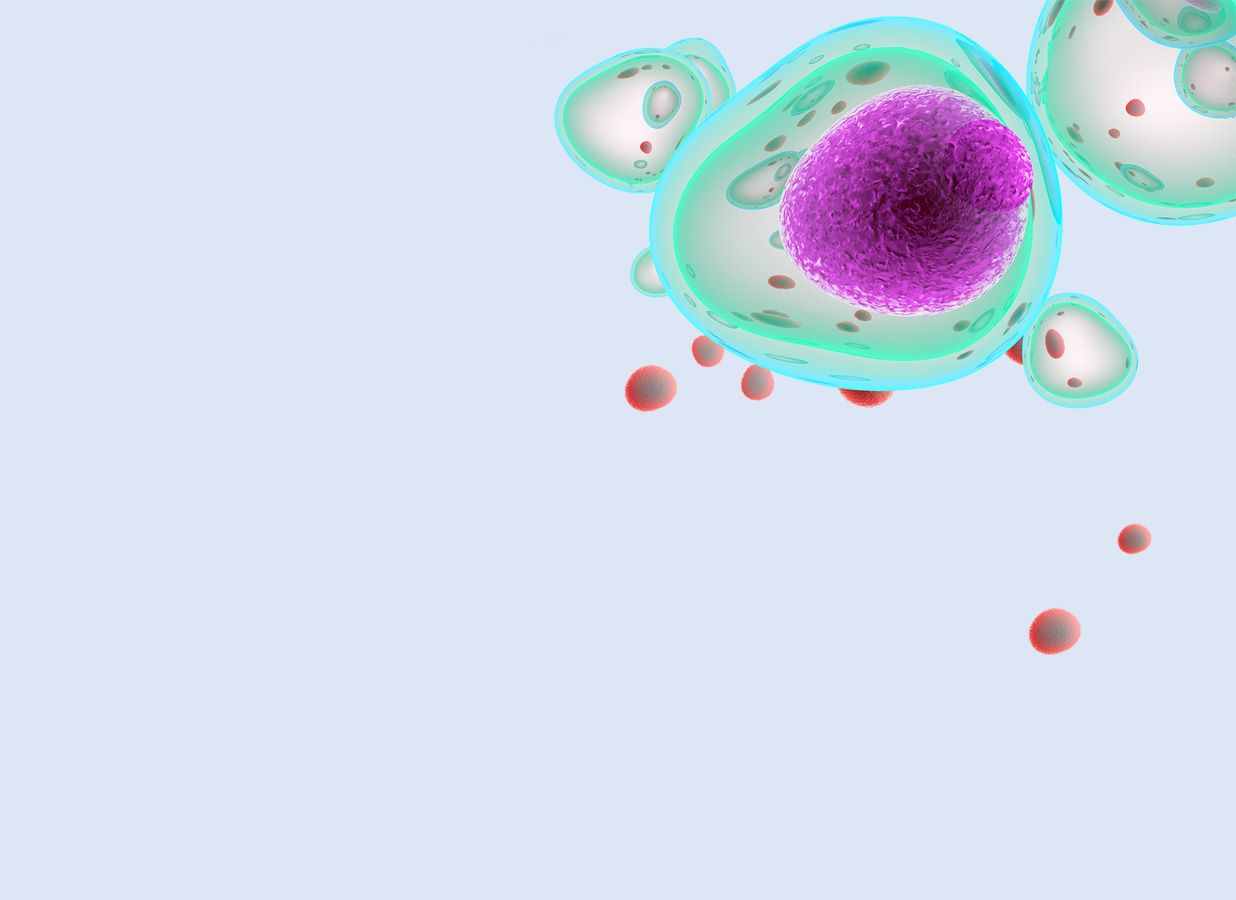
Lymphoma
Leukemia
Cell Therapy
Research
Lymphoma
Leukemia
Cell Therapy
Research
UNIVERSITY HOSPITAL FRANKFURT
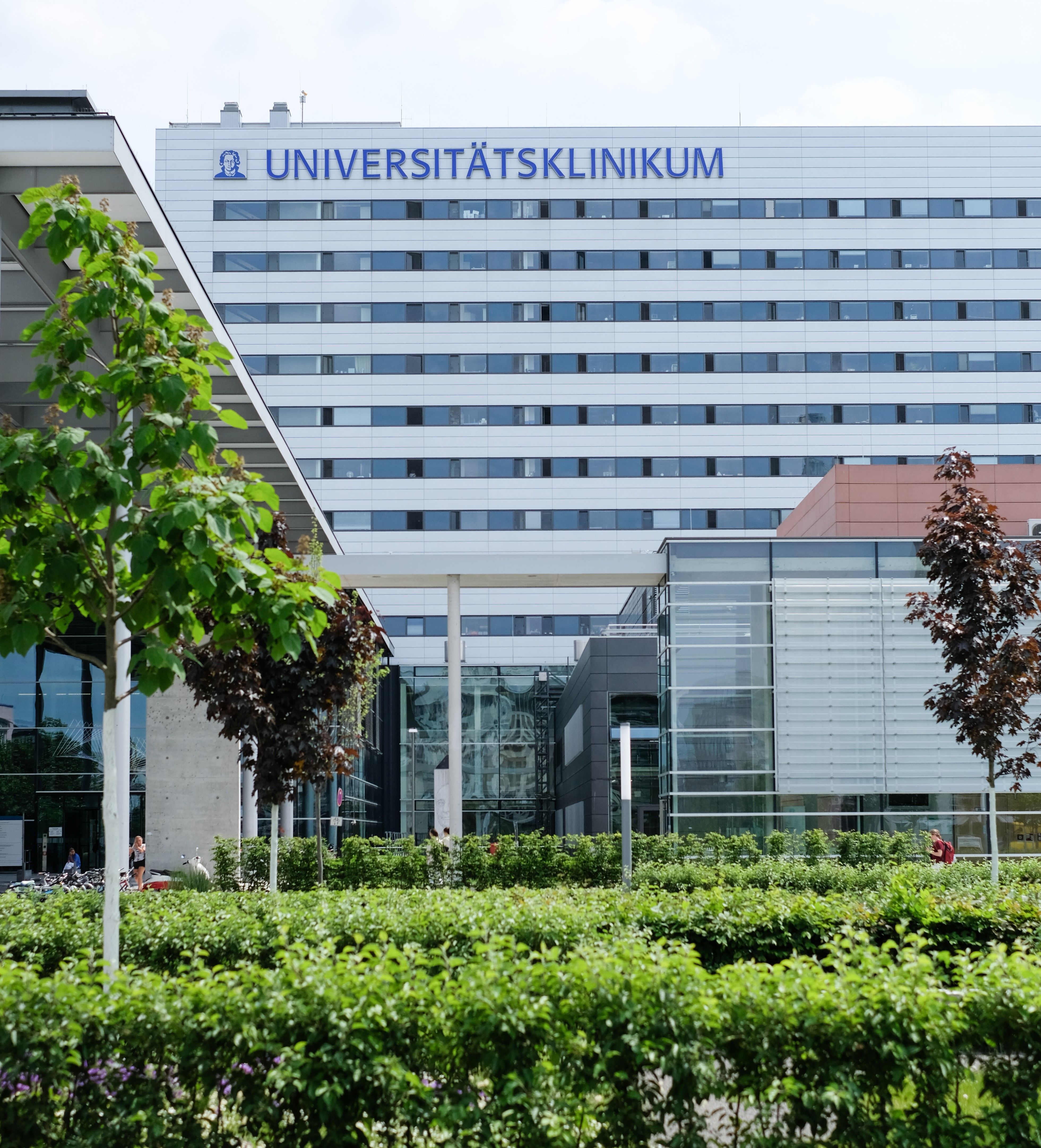
UNIVERSITY HOSPITAL FRANKFURT
Our Mission
Therefore, we offer the full spectrum of treatments for hematological malignancies and solid cancers and are dedicated to translational and clinical research with a main focus on lymphoma, leukemia and cellular therapies
→ OELLERICH LAB
The research laboratory of Dr. Thomas Oellerich, embedded within the German Cancer Consortium (DKTK) and the Frankfurt Cancer Institute (FCI), is dedicated to unraveling the intricate mechanisms underlying lymphoma and leukemia biology, along with the vision to translate our research findings into clinical advancement. Our focus is the identification of drug targets and predictive biomarkers, the elucidation of therapy resistance mechanisms, and the development of innovative therapeutic approaches, including molecular and cellular therapies. Therefore, we combine deep mechanistic research with cutting-edge technologies such as mass-spectrometry-based proteomics, functional genomics and high-resolution imaging to study innovative tumor models and patient-derived tumors.
→ SERVE LAB
Acute Myeloid Leukemia (AML) is an aggressive type of leukemia, which despite recent therapeutic progress still is fatal in the majority of cases. One important aspect of AML pathophysiology is its aggressive behavior in the bone marrow microenvironment. However, its molecular basis and metabolic mechanisms are still insufficiently understood.
Integrated into the Frankfurt Cancer Institute (FCI) and the German Cancer Consortium (DKTK), our interdisciplinary research laboratory is interested in deciphering targetable mechanisms that lead to clonal dominance and tumor expansion of AML cells. In this context, we are particularly focused on the analysis of metabolic dependencies, clonal hematopoiesis -associated genetic mutations and therapy-induced resistance mechanisms with the aim to develop novel therapeutic options
→ BRANDTS/KOSCHADE LAB
Our research lab, affiliated with the University Cancer Center Frankfurt (UCT) and the Frankfurt Cancer Institute (FCI), works at the interface of acute myeloid leukemia (AML) studying cellular and molecular mechanisms of AML maintenance and therapy resistance. Therefore, we explore the role of autophagy pathways using CRISPR/Cas9, proteomics, metabolic and flow cytometry-based assays. Investigating bone marrow adipocytes (BMAd) as the dominant population of the bone marrow microenvironment, we aim to understand the role of host autophagy pathways.
We also employ various molecular and cellular techniques looking at nongenetic adaptive pathways contributing to AML persistence during chemotherapy.
Additionally, integrating genomic data with phosphoproteomics enhances decision-making in molecular tumor boards and allows us to identify biomarkers for drug response.

→ CREMER LAB
Our research is dedicated to the translation of basic science to the clinic. Acute lymphocytic leukemia (ALL) is the second most common leukemia. Although the traditional multiagent chemotherapy regimens induce high complete remission (CR) rates, many adult patients experience relapse of their disease. Despite the breakthrough advances of antibody-based therapies, the overall long-term survival rate for patients with relapsed or refractory ALL, as well as for certain genetic subtypes is still dismal emphasizing the need for novel, targeted treatment strategies. By applying a multi-omics approach, as well as innovative screening strategies and complementing our results with clinical patient samples and data, our goal is to identify new oncogenic transcriptional networks in acute lymphoblastic leukemia (ALL) which will ultimately lead to new targeted treatment strategies for patients with this disease
→ SCHEICH LAB
→ RIEGER LAB
The group of Michael Rieger focuses their research on basic mechanisms that control normal and disturbed stem cell fate decisions (self-renewal, differentiation, lineage choice, quiescence, metabolism). Clonal architecture, dominance and competition of stem cells in health and disease are studied. Hematopoietic stem cells and their orchestrated differentiation into blood cell lineages are primarily studied. Eary molecular drivers of clonal dominance and their consequences on interorgan communication and disease progression must be understood for early prevention and treatment of hematologic and non-hematologic diseases. We utilize and develop cutting-edge single cell technologies and bioinformatic analyses and apply them to stem cell systems from mice and humans. MultiOmics single cell sequencing combined with multi-color FACS sorting enable analysis of defined cell identites.
Our Mission
Therefore, we offer the full spectrum of treatments for hematological malignancies and solid cancers and are dedicated to translational and clinical research with a main focus on lymphoma, leukemia and cellular therapies
→ OELLERICH LAB
Our research laboratory, embedded within the German Cancer Consortium (DKTK) and the Frankfurt Cancer Institute, is dedicated to unraveling the intricate mechanisms underlying lymphoma and leukemia biology, along with the vision to translate our research findings into clinical advancement. Our focus is the identification of drug targets and predictive biomarkers, the elucidation of therapy resistance mechanisms, and the development of innovative therapeutic approaches, including molecular and cellular therapies. Therefore, we combine deep mechanistic research with cutting-edge technologies such as mass-spectrometry-based proteomics, functional genomics and high-resolution imaging to study innovative tumor models and patient-derived tumors.
→ SERVE LAB
Acute Myeloid Leukemia (AML) is an aggressive type of leukemia, which despite recent therapeutic progress still is fatal in the majority of cases. One important aspect of AML pathophysiology is its aggressive behavior in the bone marrow microenvironment. However, its molecular basis and metabolic mechanisms are still insufficiently understood.
Integrated into the Frankfurt Cancer Institute and the German Cancer Consortium (DKTK), our interdisciplinary research laboratory is interested in deciphering targetable mechanisms that lead to clonal dominance and tumor expansion of AML cells. In this context, we are particularly focused on the analysis of metabolic dependencies, clonal hematopoiesis -associated genetic mutations and therapy-induced resistance mechanisms with the aim to develop novel therapeutic options
→ BRANDTS/KOSCHADE LAB
Our research lab, affiliated with the University Cancer Center Frankfurt (UCT) and the Frankfurt Cancer Institute (FCI), works at the interface of acute myeloid leukemia (AML) studying cellular and molecular mechanisms of AML maintenance and therapy resistance. Therefore, we explore the role of autophagy pathways using CRISPR/Cas9, proteomics, metabolic and flow cytometry-based assays. Investigating bone marrow adipocytes (BMAd) as the dominant population of the bone marrow microenvironment, we aim to understand the role of host autophagy pathways.
We also employ various molecular and cellular techniques looking at nongenetic adaptive pathways contributing to AML persistence during chemotherapy.
Additionally, integrating genomic data with phosphoproteomics enhances decision-making in molecular tumor boards and allows us to identify biomarkers for drug response.
→ CREMER LAB
Our research is dedicated to the translation of basic science to the clinic. Acute lymphocytic leukemia (ALL) is the second most common leukemia. Although the traditional multiagent chemotherapy regimens induce high complete remission (CR) rates, many adult patients experience relapse of their disease. Despite the breakthrough advances of antibody-based therapies, the overall long-term survival rate for patients with relapsed or refractory ALL, as well as for certain genetic subtypes is still dismal emphasizing the need for novel, targeted treatment strategies. By applying a multi-omics approach, as well as innovative screening strategies and complementing our results with clinical patient samples and data, our goal is to identify new oncogenic transcriptional networks in acute lymphoblastic leukemia (ALL) which will ultimately lead to new targeted treatment strategies for patients with this disease
→ SCHEICH LAB
→ RIEGER LAB
We focus our research on basic mechanisms that control normal and disturbed stem cell fate decisions (self-renewal, differentiation, lineage choice, quiescence, metabolism). Clonal architecture, dominance and competition of stem cells in health and disease are studied. Hematopoietic stem cells and their orchestrated differentiation into blood cell lineages are primarily studied. Eary molecular drivers of clonal dominance and their consequences on interorgan communication and disease progression must be understood for early prevention and treatment of hematologic and non-hematologic diseases. We utilize and develop cutting-edge single cell technologies and bioinformatic analyses and apply them to stem cell systems from mice and humans. MultiOmics single cell sequencing combined with multi-color FACS sorting enable analysis of defined cell identites.
Research Programs
FOR5643 Herzblut
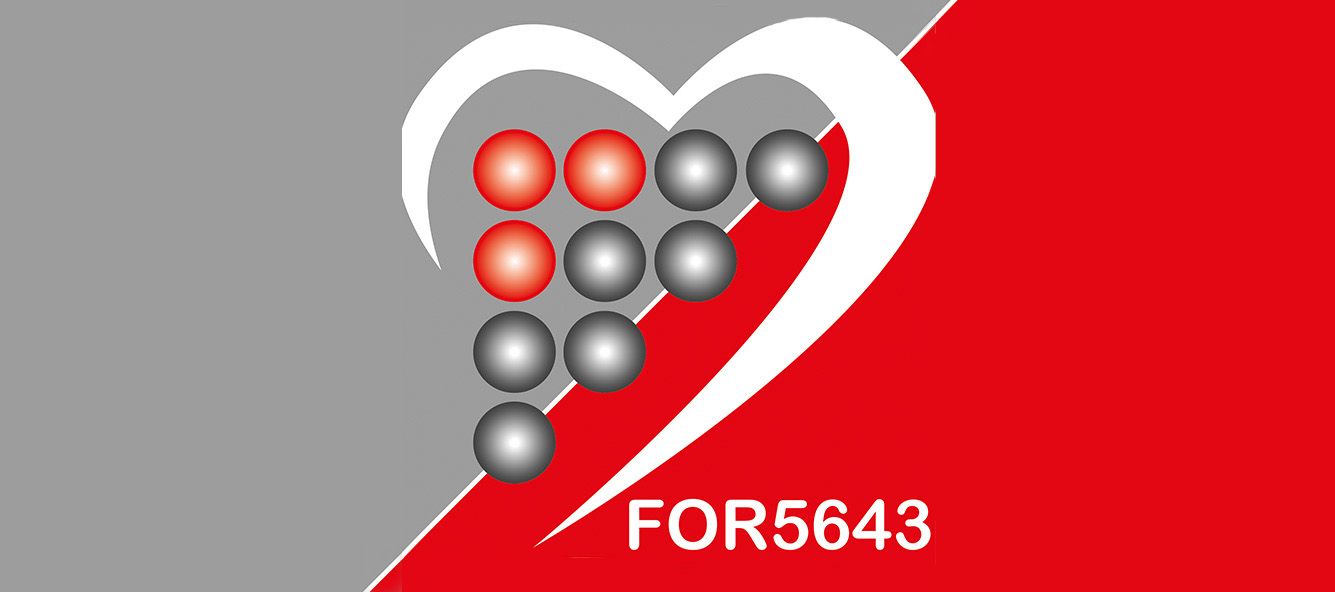
CARISMa
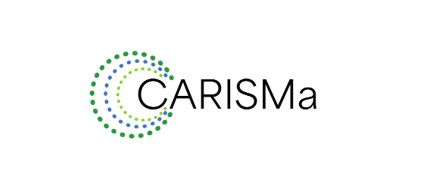
BITeAML
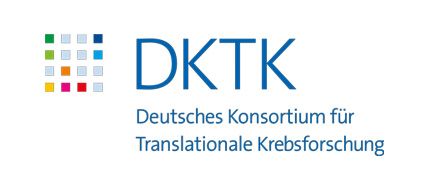
NEWS
Recently Published
New paper published
in Cancer Cell (02/2024)
by Phelan & Scheich et al.
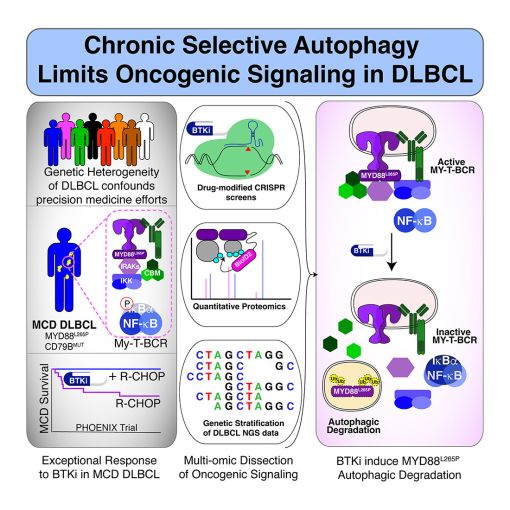
Diffuse large B cell lymphoma (DLBCL) is an aggressive, profoundly heterogeneous cancer, presenting a challenge for precision medicine. Bruton’s tyrosine kinase (BTK) inhibitors block B cell receptor (BCR) signaling and are particularly effective in certain molecular subtypes of DLBCL that rely on chronic active BCR signaling to promote oncogenic NF-κB. The MCD genetic subtype, which often acquires mutations in the BCR subunit, CD79B, and in the innate immune adapter, MYD88L265P, typically resists chemotherapy but responds exceptionally to BTK inhibitors.
However, the underlying mechanisms of response to BTK inhibitors are poorly understood. Herein, we find a non-canonical form of chronic selective autophagy in MCD DLBCL that targets ubiquitinated MYD88L265P for degradation in a TBK1-dependent manner. MCD tumors acquire genetic and epigenetic alterations that attenuate this autophagic tumor suppressive pathway. In contrast, BTK inhibitors promote autophagic degradation of MYD88L265P, thus explaining their exceptional clinical benefit in MCD DLBCL.
Updates
CARISMa Grant (4,8 Mio)
successfully acquired
from 2025-2028!
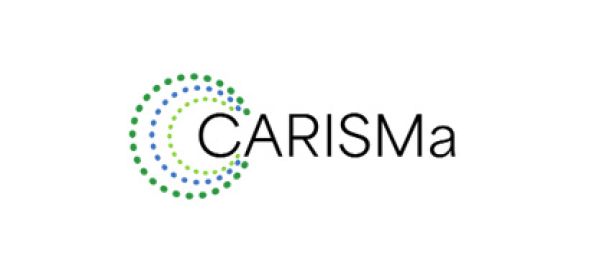
The collaborative CARISMa research program was successfully acquired for 2025-2028, providing 4.8 million in funding for innovative cell therapy research. The excellence research funding program of the state of Hessen (LOEWE) provides the grant. (Speaker: T. Oellerich)
BITeAML funding successfully acquired
in the 12th DKTK Joint Funding Call
"INNOVATION 2024"
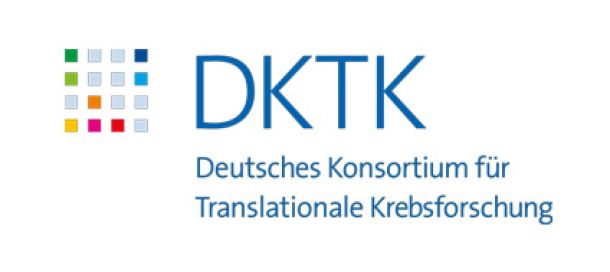
The 12th DKTK Joint Funding Call “INNOVATION 2024” is completed. With the DKTK Joint Funding Program line “INNOVATION”, DKTK supports translational research projects of DKTK scientists for up to three years. At least three DKTK partner sites must be involved in the proposed research project. Maximum budget that can be requested in this call is 1.5 Mio €. A total of 35 proposals have been submitted during this call. (Speaker: T. Oellerich)
German Lymphoma Alliance 2023 Award
in Lymphoma Biology
for Sebastian Scheich ↓
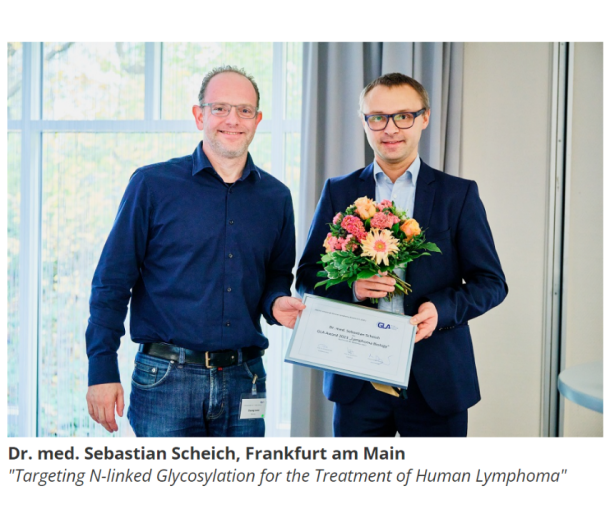
In 2023, Sebastian Scheich was honored with the German Lymphoma Alliance Award in Lymphoma Biology. This recognition celebrates his outstanding dedication and significant contributions to the field of lymphoma biology.
His work has not only deepened the understanding of lymphoma biology but also paved the way for novel approaches in their treatment and therapy. This award underscores his commitment and passion for researching and combating this disease.
Seer’s Proteograph XT
available in our proteomics lab
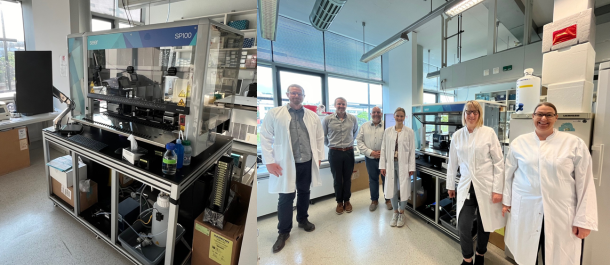
We’re happy to implement Seer’s nanoparticle-based Proteograph platform for deep plasma proteomics. Our proteomics team already received extensive application training and is looking forward to work with the instrument. Special thanks got to Ryan, Maik, Dave and Helmut from Seer. Image credits: Maik Pruess, Seer Inc.
Orbitrap Astral
arrived in our proteomics lab
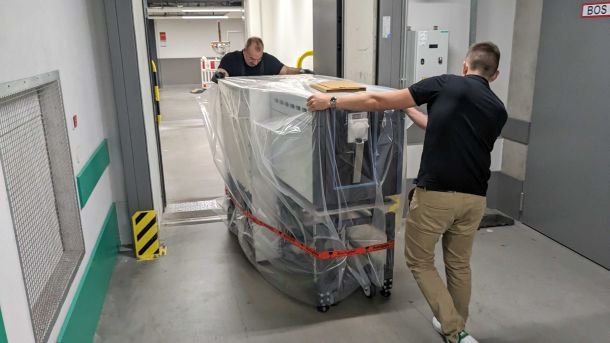
We’re excited to get in touch with Thermo Fisher’s next-generation Tribrid mass spectrometer. Its exceptional combination of sensitivity, speed, and versatility will boost our proteomics workflows, especially for deep plasma and low-input analyses. The instrument has just been deployed to our facilities and is ready to be installed and put into service.
News Archive
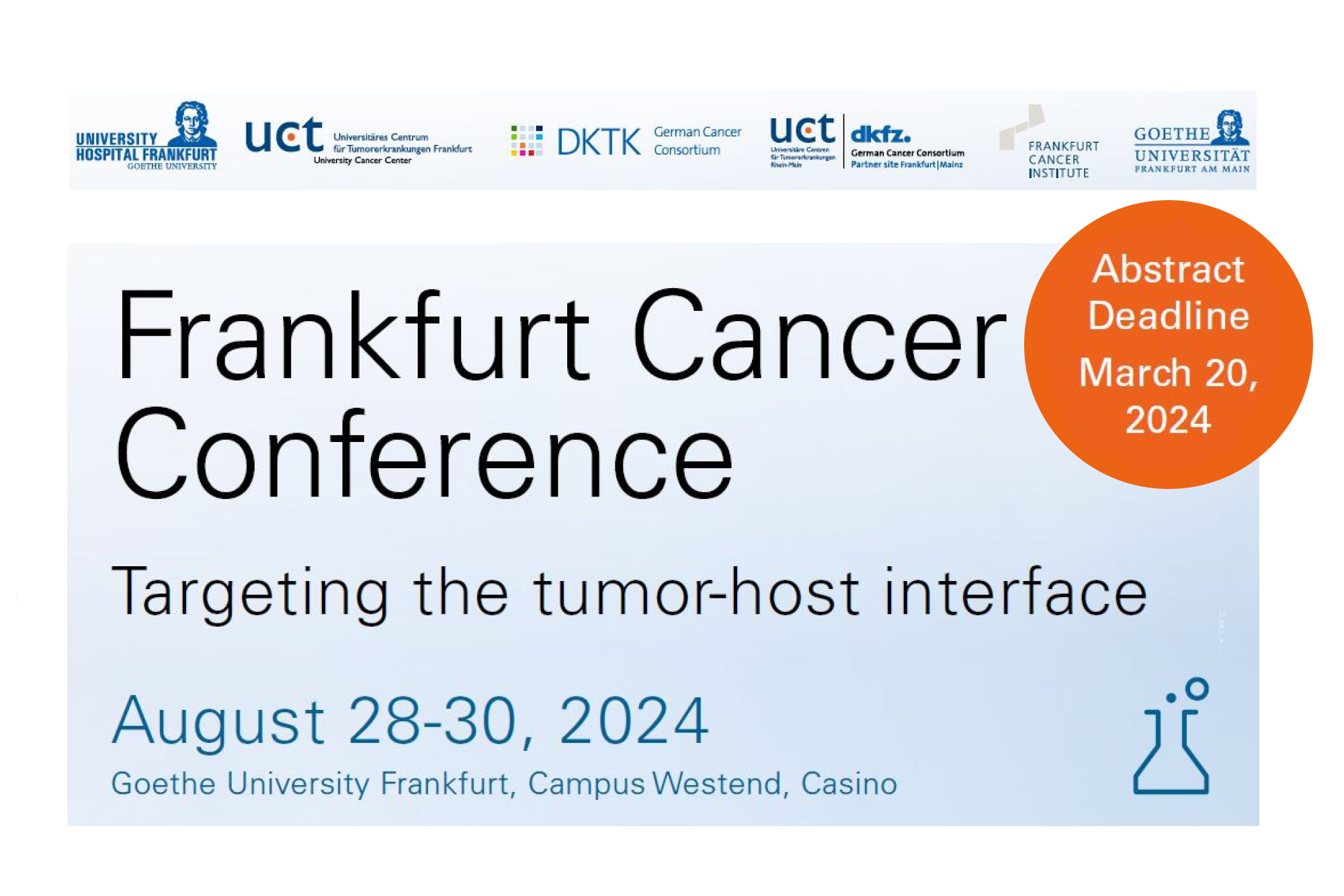
The Frankfurt Cancer Conference is a three-day on-site meeting of internationally leading cancer researchers as well as junior scientists and clinical oncologists. The main theme of the conference in 2024 is “Targeting the tumor-host interface”.
The ongoing translational research activities of the University Cancer Center (UCT) Frankfurt, the German Cancer Consortium (DKTK) in Frankfurt/Mainz and the Frankfurt Cancer Institute (FCI) provide the framework for the conference. International, national and local research activities will be presented with focus on the following topics:
- Metabolism at the tumor-host interface
- Targeted cell therapy
- Molecular drug discovery
- Modulating immune therapy response
- Post-transcriptional disease mechanisms
- Exploitation of the tumor microenvironment
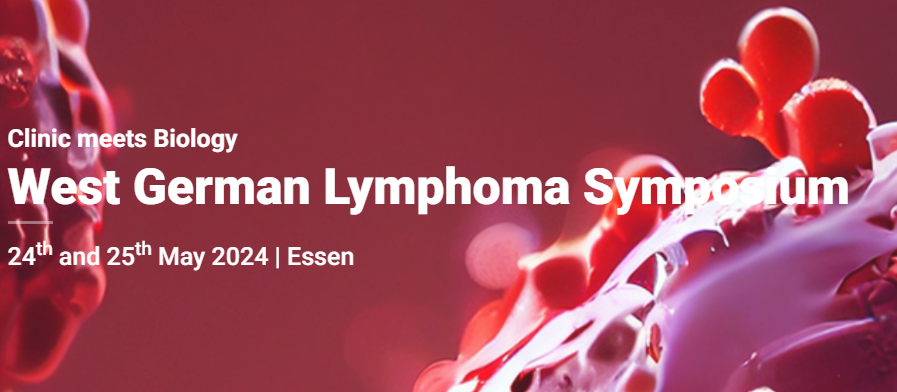
Launch of the bi-annual West German Lymphoma Symposium, to facilitate the scientific exchange within the region, excite young researchers for lymphoma research, and, most importantly, to further expand our international visibility and outreach.
The organizing team of the West German Lymphoma Symposium is happy to invite you to be part of our inaugural meeting. The meeting will take place on 24th and 25th of May 2024 in Essen Germany.
- Deadline Abstract Submission 10th April 2024
- Symposium 24th and 25th May 2024
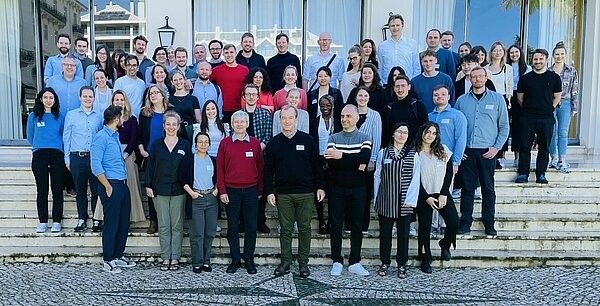
This year's retreat took place in conjunction with the [7th Translational Research Conference]
( https://www.esh.org/conference/7th-translational-research-conference-lymphoid-malignancies )
on Lymphoid Malignancies, organized by the European School of Haematology (ESH). Owing to the conference's subject, the organization of our annual retreat fit in seamlessly.
Our consortium did not only use this opportunity to present their data among international leading scientists in the field of B-cell malignancies, but they could also learn from the most recent developments in the biology and therapy thereof. Both early career scientists as well as principal investigators within our CRC were selected to speak at individual sessions and to present their latest findings during the poster session.
Subsequently, we extensively discussed our own projects and progress over two days, which was packed with fruitful exchange and new, exciting schemes for the coming year.


























